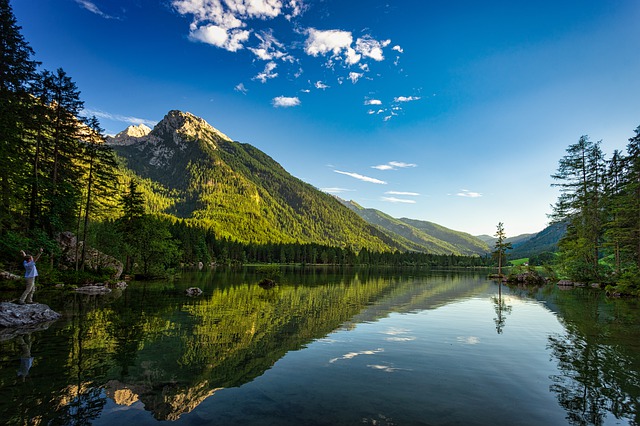Diana Winston recently provided a meditation podcast entitled, Envisioning a Positive Future in Our World. The podcast was timely given the devastating fires across Australia in the months preceding and following the presentation and the ongoing challenge of gaining control over fires that continue to rage. Diana’s guided meditation was a part of the weekly podcasts offered by MARC, UCLA. Diana emphasised the need to draw on mindfulness for strength and resilience, to envisage a better future and to collaborate to achieve a better world.
The immeasurable impact of the Australian bushfires
The devastating impact of the Australian bushfires and wildfires was brought into sharp relief by the ABC Four Corners© program, Black Summer, aired on 3rd February 2020. The program incorporated video footage from various areas and stages of the fires along with discussions by people who had survived the fires and lost their homes and/or family members, firefighters who described what it was like to be in thick of the fires, evacuation centre volunteers and elected officials living in areas impacted by the fires.
Michael Pengilly, Mayor of Kangaroo Island in South Australia, summed up the extent of the physical devastation when he said:
So far this bushfire season, almost 12 million hectares have burned. At least a billion native animals have died. More than 3,000 homes have been destroyed and 33 people have lost their lives.
He pointed out that there were still bushfires creating havoc across Australia at the time of the TV program.
Firefighters and people who had lost their homes and loved ones spoke of the trauma resulting from the fires, the fear of losing their lives, the 48 hours of blackness and the suffocating smoke that burned into your throat and lungs. Aaron Salway, who lost his father and brother in the bushfires, spoke of the immeasurable impact on themselves and children who have experienced and survived the fires:
This fire I’ll never forget. I don’t think my kids will ever forget it. It’s something that’s going to be scarred into my brain. I don’t ever want to see it again.
When you see pictures of 60 metre high flames; raging fires driven by gale force winds (in excess of 80 kph); exhausted firefighters who have just heard that two of their colleagues had died in a fire truck rollover caused by a fallen tree; and flying embers moving at high speed horizontal to the ground, you understand that the emotional scars are deep and very real.
Some of the lessons from the Australian bushfires
The fires brought to the fore the courage and resilience of individuals and communities when confronted with a crisis of this scale. One such inspiring example was that of members of a Muslim Community who travelled for five hours to cook for exhausted firefighters in East Gippsland in Victoria and arranged five truckloads of donated goods to be delivered to people in fire-affected communities.
The firefighters (many of whom were volunteers) who risked their lives, and in some cases lost their lives, showed incredible commitment to helping others to deal with the frightening challenge of the fires raging out of control.
One of the key lessons of the fires was what people could achieve when they pulled together, pooled their resources, supported each other emotionally and concerned themselves with the safety of others. The questions and answers during the video episode highlighted some other key lessons:
- The climate-changed world is a “new normal”
- Unless people of different political persuasions can pull together and collaborate, there is no way that the situation can be redressed and the prognosis for the future be improved
- Leaders at every level need to move beyond petty differences and demonstrate true leadership – marshalling committed followers to work towards creating a positive future
- Australia must find ways to tap into the indigenous knowledge of landscape management – learning about and respecting the environment and related ecosystems.
Tackling climate change as individuals
In introducing her podcast, Diana highlighted an article by Emma Morris in the New York Times on January 10, 2020. In the article, titled How to Stop Freaking Out and Tackle Climate Change, Emma provides a sound five-point plan that individuals can pursue to move beyond paralysis by fear to constructive engagement:
- Ditch the shame
- Focus on the systems, not yourself
- Join an effective group
- Define your role
- Know what you are fighting for, not just what you are fighting against.
The last point demands moving beyond blaming to collaborative endeavour. Emma’s plan shows what individuals can do to create a positive future for their children and grandchildren.
Diana draws on this discussion to incorporate a visioning exercise in her guided meditation. After an introductory period focused on becoming grounded, Diana suggests that people engaging in the meditation begin to envision what a renewed environment would look like in terms of flourishing trees, clean air, running water, clear skies, happy children, healthy and diverse wildlife, numerous birds and butterflies – a very different picture to one of darkened skies, dense and suffocating smoke, children distressed about their future environment, blackened trees and flora and burned/dead animals (many of them in danger of extinction). Diana maintains that the future is ours to create.
Reflection
As we grow in mindfulness through meditation and reflection, we can build our resilience; better appreciate our connectedness to others and our natural world; develop our motivation to collaborate and take compassionate action; overcome our biases and assumptions; and develop our personal role in helping to shape a positive future in our climate-changed world.
_____________________________________
Image by Johannes Plenio from Pixabay
By Ron Passfield – Copyright (Creative Commons license, Attribution–Non Commercial–No Derivatives)
Disclosure: If you purchase a product through this site, I may earn a commission which will help to pay for the site, the associated Meetup group and the resources to support the blog.
